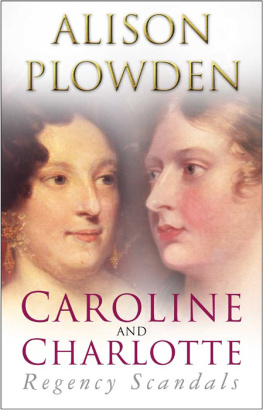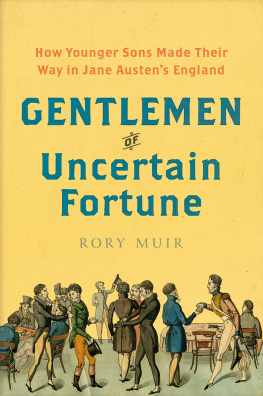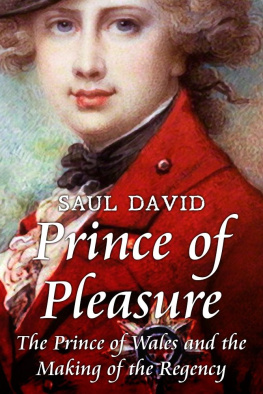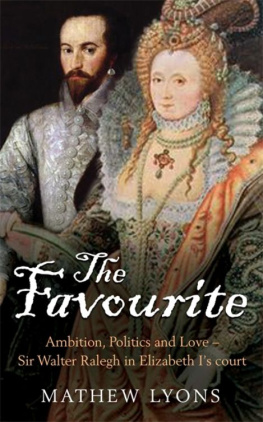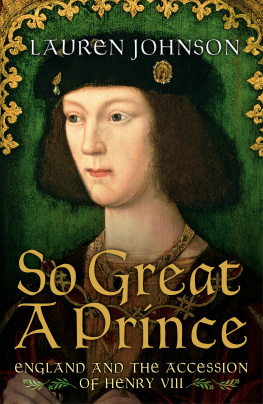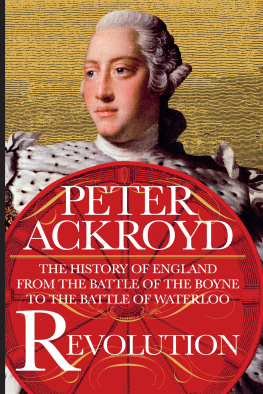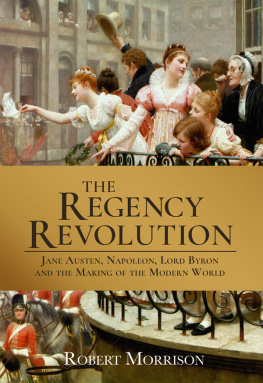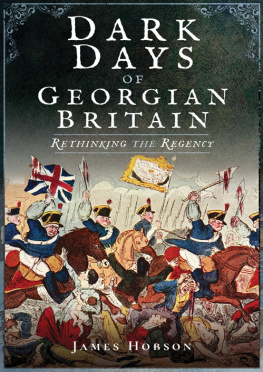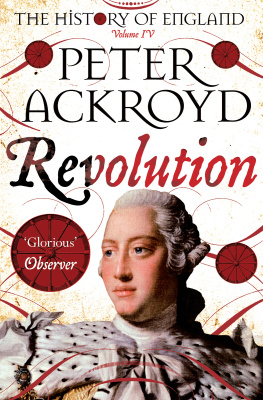Title Page
THE FORTUNE HUNTER
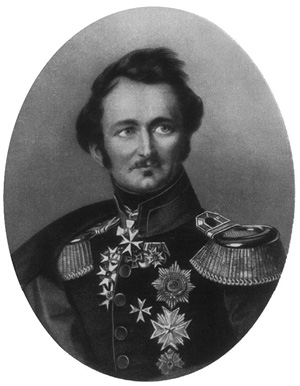
A German Prince in Regency England
By
P eter J ames B owman
Publisher Information
First published in 2010 by
Signal Books Limited
36 Minster Road
Oxford OX4 1LY
www.signalbooks.co.uk
Digital edition converted and distributed in 2011 by
Andrews UK Limited
www.andrewsuk.com
Peter James Bowman, 2010
The right of Peter James Bowman to be identified as the author of this work has been asserted by him in accordance with the Copyright, Design and Patents Act, 1988.
All rights reserved.The whole of this work, including all text and illustrations, is protected by copyright. No parts of this work may be loaded, stored, manipulated, reproduced or transmitted in any form or by any means, electronic or mechanical, including photocopying and recording, or by any information, storage and retrieval system without prior written permission from the publisher, on behalf of the copyright owner.
Design & Production: Devdan Sen
Cover Design: Devdan Sen
Cover Image: An Election Ball. Caricature by William Heath, 1827 or 1828; in the authors possession.
Quote
In the past of ones country one is a foreigner, and it is naturally with other foreigners that one identifies.
J.W. Burrow, The Times , 20 June 1970
Dedication
FOR MY PARENTS
Acknowledgements
In telling the previously untold story of Prince Pcklers matrimonial tour of England, I have adhered to the documentary evidence and avoided imaginative reconstruction. This policy was made easier by the richness of the sources in the Archive of the Pckler Foundation in Branitz. In using these sources I was assisted by the Archives staff, initially Volkmar Herold and subsequently Christian Friedrich and Anne Schfer, for whose hospitality, patience and manifold generosity it is a pleasure to express my gratitude here.The Archive is housed in the pretty neo-Gothic former estate forge, and my workroom there, with its view of the park and the mansion house where Pckler spent his last twenty-six years, will always be a happy memory. I also benefited from Englandsouvenirs , the companion volume to an exhibition on Pcklers stay in England held at Muskau and Branitz in 2005, particularly from the essays therein by Nicole and Michael Brey.
To Dr Nikolaus Gatter, director of the Varnhagen Society in Cologne, I am deeply obliged for photocopies of Pckler-related newspaper and periodical articles in the Societys collection and for many other acts of kindness. Also in Germany, Ulf Jacob provided information and references and brought my research to the attention of his fellow Pckler scholars.
The bulk of my work with British newspapers, journals and books was done at the Cambridge University Library, facilitated by the unfailing efficiency of its staff.Were it not for the magnanimous policy of allowing graduates of the University lifelong membership of the Library, this book would have taken far longer to write.
I have also been helped by the staffs of the British Library, the British Library Newspapers (Colindale), the Guildhall Library, the Family Records Centre, the National Archives (Kew), the London Metropolitan Archives, and several Public Record Offices and other institutions in the UK as well as the Jagiellonian Library in Cracow, Poland.
For welcoming me into their homes and giving me access to family papers I extend my warmest thanks to Sir John and Lady Hervey-Bathurst, Somborne Park; Captain and Mrs Bell, Llangedwyn Hall; and Mr and Mrs Somerset, Castle Goring.
Those who provided information in response to written enquiries are too numerous to list, but I must at least mention Robin Elliott, Berkshire Record Office; Nigel Everett, Hafod Press; Kate Fielden, Bowood Estate Office; Sheena Jones, Windsor Reference Library; Sheila Markham,The Travellers Club; Malcolm Underwood, St Johns College, Cambridge; John Wardroper, Shelfmark Books; and Emma Whinton, National Monuments Record. Bia von Doetinchem answered my questions about Wilhelm von Biel and sent me a copy of her privately printed book about his family.
I am very grateful to those who read some or all of the manuscript at various stages for their comments: Richard Aronowitz, Lizzie Collingham, Carmel Curtis, Marion Piening, Reehana Raza,Thomas Seidel, Deb Truscott and my parents John and Silvia Bowman. My greatest debt in this regard is to Richard T. Kelly, whose eight pages of remarks on an early draft prompted me to rewrite several chapters. I further profited from the editorial input of James Ferguson of Signal Books, who did everything possible to make the journey into print speedy and smooth. As well as being the first to read the full manuscript, Claude Piening gave me invaluable help and encouragement from the inception of this project. John Cornwell placed his long experience as a writer at my disposal in various ways.
About a third of the illustrations are taken from Pcklers travel albums, and their reproduction here is by gracious permission of the Pckler Foundation in Branitz (vol. I) and Count Hermann von Pckler (vols II & III). Erika Ingham of the Archive and Library of the National Portrait Gallery tracked down several portraits for me, Sothebys and Christies sent on blind letters to current owners, and private individuals and curators of collections kindly furnished me with images of items in their possession or care. Further acknowledgements are made in the list of illustrations.
Note: Following common practice, I use the term Regency to describe the first three decades of the nineteenth century, not just the years from 1811 to 1820 when the Prince of Wales acted as Regent for his father George III.
Prologue
A set of foreign adventurers, who come here to seek their fortunes
Late in the evening of 28 September 1826 the steam packet from Rotterdam finally dropped anchor near London Bridge. Rather than the usual twenty hours the crossing had taken forty, six of them spent beached on a sandbank in the Thames Estuary.The conditions were so stormy, the motion of the boat so unsettling and the stench from the engines so foul that all the passengers were violently ill. On arrival they were told they must not remove their luggage until the Custom House in Lower Thames Street opened at ten oclock the next day. Some slept alongside their possessions, but Prince Hermann von Pckler-Muskau passed the night in a sailors tavern next to the moored boat. As he lay in his dingy room, unchanged and unwashed, he must have wondered why he could not be at home, enjoying the comforts of a well-run chateau with his beloved Lucie. But England was his only hope; if he could not repair his fortunes here he faced bankruptcy and the loss of his lifes work. In the morning he went back on board for the inspection of his effects and succeeded in bribing the customs men to ignore the pairs of French gloves he had packed as gifts for ladies. Then he drove to the Clarendon Hotel in Bond Street. He could not afford to stay there for long, but it would be a good base from which to begin his campaign.
A decade earlier he had married Lucie von Pappenheim, a moderately wealthy divorcee. Both were passionately attached to Muskau, his large estate in the eastern German region of Lusatia, which, with her help, he would turn into a magnificent park. But before the work was complete they had poured all their money into the soil and were deep in debt.To avoid the dire necessity of selling the estate the couple devised a bizarre, but to their minds perfectly sensible, scheme: they would divorce so that Pckler could marry an heiress who would finance his continued landscaping and, after a decent interval, be persuaded to let Lucie carry on living at Muskau with them.
Next page


